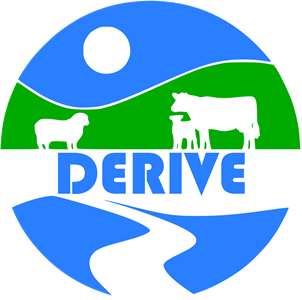-
Courses

Courses
Choosing a course is one of the most important decisions you'll ever make! View our courses and see what our students and lecturers have to say about the courses you are interested in at the links below.
-
University Life

University Life
Each year more than 4,000 choose University of Galway as their University of choice. Find out what life at University of Galway is all about here.
-
About University of Galway

About University of Galway
Since 1845, University of Galway has been sharing the highest quality teaching and research with Ireland and the world. Find out what makes our University so special – from our distinguished history to the latest news and campus developments.
-
Colleges & Schools

Colleges & Schools
University of Galway has earned international recognition as a research-led university with a commitment to top quality teaching across a range of key areas of expertise.
-
Research & Innovation

Research & Innovation
University of Galway’s vibrant research community take on some of the most pressing challenges of our times.
-
Business & Industry

Guiding Breakthrough Research at University of Galway
We explore and facilitate commercial opportunities for the research community at University of Galway, as well as facilitating industry partnership.
-
Alumni & Friends

Alumni & Friends
There are 128,000 University of Galway alumni worldwide. Stay connected to your alumni community! Join our social networks and update your details online.
-
Community Engagement

Community Engagement
At University of Galway, we believe that the best learning takes place when you apply what you learn in a real world context. That's why many of our courses include work placements or community projects.
DERIVE
DERIVE - Detection and RIsk management of Verotoxigenic E. coli (VTEC) in the water Environment

We are looking for private well owners in the Little Brosna Catchment (South of Birr, Co. Offaly) to participate in the research. Registration is open from April 2024.
Register here to get a free microbial water quality test for your well!
What is the DERIVE Project?
- A research project that aims to better understand how the bacterial pathogen VTEC moves through surface waters and into groundwater, and how it contaminates private wells. VTEC causes over 700 gastrointestinal infections every year in Ireland, and around 1/3 of those infected are hospitalised with bloody diarrhoea.
- DERIVE aims to develop new tools to detect and predict VTEC contamination of groundwater-derived water supplies including private household wells. The DERIVE team includes microbiologists, environmental scientists, public health doctors and other stakeholders involved in providing safe drinking water for rural communities in Ireland.
What is VTEC?
-
A harmful type of E. coli bacteria, which lives in the intestines of cattle, sheep and other ruminants without causing them harm. VTEC are present in high numbers in cattle and sheep poo (i.e. manure) and can pass through the soil and surface waters to the deeper groundwater and contaminate drinking water supplies.
- Infection happens when contaminated food or water is consumed, or through poor hand hygiene after contact with animals.
- Once a person is infected, person to person spread can result in outbreaks, especially in childcare facilities where exposure to poo during nappy changing is common.
-
VTEC produce a powerful poison (called verotoxin) that can cause severe diarrhoea with sometimes life-threatening complications, especially in vulnerable people (i.e. young children and the elderly).
- Very low numbers of VTEC bugs are needed to make a person sick.
-
Infection causes serious illness that frequently requires hospitalisation, and in up to 10% of cases results in the life-threatening kidney problem, haemolytic uremic syndrome (HUS).
Why are we doing this research?
- To prevent people with private wells from getting sick or being hospitalised due to VTEC infection.
-
About 750,000 people in Ireland use small groundwater supplies or private household wells for their drinking water. These supplies are vulnerable to VTEC contamination and are often untreated.
- To protect private well owners from infection, we need to be able to predict when VTEC contamination will happen and detect it when it does.
-
People with private drinking water wells are four times more likely to get infected.
- If we can predict the transport and concentration of VTEC in water, we can reduce and mitigate their impact on human health.
What do we know?
-
Ireland has frequently reported the highest rate of VTEC infections in the EU, up to10 times the EU average.
-
There has been a significant rise in the number of cases of VTEC in Ireland since 2005, with nearly 1,000 cases in some recent years
- If you have a private well, you are more at risk, so regular microbiological water testing (once a year) is important.
- Treatment systems, such as UV disinfection, are excellent at killing VTEC bugs in water, but many well owners do not have them.
What do we need to know?
- How are VTEC transported from the source animals (cattle and sheep) into drinking water supplies?
- Do VTEC from human waste sources (septic tanks) also contaminate drinking water supplies, and if so how?
-
How many VTEC bugs are there in the different water bodies (in surface waters, ground water and in drinking water supplies)?
-
How does the quantity of VTEC bugs in the different water bodies change during the seasons, and with extreme weather events.
-
Technical information on the well infrastructure - to inform which is the best design
Why does this research matter?
- Hundreds of Irish children every year end up in hospital with VTEC infections which are preventable.
- Rural families in Ireland deserve safe private drinking water supplies.
- The technologies developed in DERIVE will help to identify and predict VTEC contamination of private wells.
.















